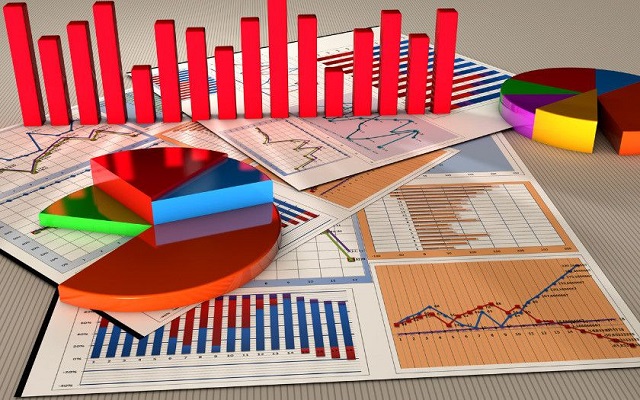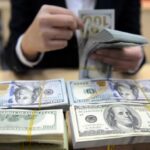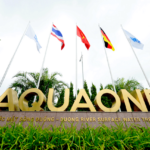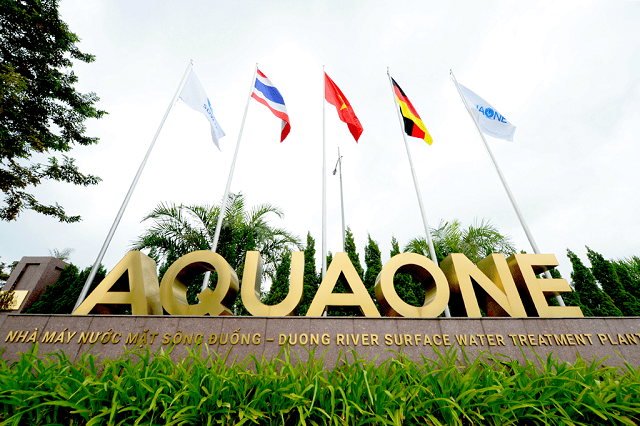
Illustrative image
|
1. On the degree of cash flow conversion: The State Bank of Vietnam (SBV) has implemented a controlled floating exchange rate policy, widening the trading band. Notably, in its November 2023 report, the US Department of Commerce placed Vietnam on the monitoring list for currency manipulation. This was due to Vietnam’s large trade surplus with the US (ranking third in surplus with the US) and significant global current account surplus. However, the US Department of Commerce soon confirmed that Vietnam did not engage in currency manipulation.
2. The issue of wage negotiation between laborers and employers: In 2020, there were over 400,000 businesses operating in the country, and by mid-2024, Vietnam had approximately 870,000 active businesses. The region’s labor wages also increased from 10 million VND/person in 2020 to over 15 million VND by mid-2024.
However, the ratio of small and medium-sized enterprises still dominates, ranging from 94-96%. With such a labor market development, although the government has made significant efforts, it also has a considerable impact on meeting the criteria for a social market economy. This is because the US considers that the mechanism for wage negotiation in Vietnam does not meet the standards of a social market economy.
3. The level of foreign investment (FDI) in economic activities: New registered FDI in Vietnam in 2023 reached 36.6 billion USD, an increase of 32.1% compared to 2022. In the first six months of 2024, it is estimated to reach 10.84 billion USD, an increase of 8.2% over the same period last year. This not only helps improve the trade balance but also contributes significantly to foreign exchange accumulation and the enhancement of the country’s foreign exchange reserves.
The impressive performance of the FDI sector reflects the effectiveness of Vietnam’s investment incentive policies and its efforts in legal and administrative reforms. Many large US corporations have established a presence in Vietnam, ranging from technology companies to consumer goods manufacturers. We have sufficient evidence to meet the requirements set by the US regarding this criterion.
4. On the issue of state ownership and private ownership: In the context of developing a socialist-oriented social market economy in Vietnam, this is an economy with multiple sectors, operating under a market mechanism with state management. Vietnam is creating mechanisms and policies to establish a favorable, healthy, and fair business environment…
However, the US considers that Vietnam does not meet the criteria for a social market economy regarding this aspect. Although in recent years, the Vietnamese government has taken significant steps to reduce its dependence on state-owned enterprises.
5. On the criterion of the degree of government control over certain resources and prices: Since the shock of the Covid-19 pandemic in 2020, the country has quickly recovered and made a strong breakthrough. In 2022, GDP growth reached 8.02%, the highest in Southeast Asia and 20th in the world. In 2023, despite facing difficulties in the international market, the economy maintained a growth rate of 5.05%. Inflation was well controlled, with the average CPI in 2023 increasing by only 3.25%, much lower than the target set.
However, the US Department of Commerce’s perspective on this criterion is understandable. According to the Global Competitiveness Report 2023 published by the World Economic Forum, Vietnam ranked 67th out of 141 economies, indicating that although there have been improvements, there is still a significant gap compared to developed countries. The Vietnamese government has been striving to enhance this criterion by enacting the Law on Prices 2023, a landmark law in the country’s economic policies.
6. Other factors: Vietnam demonstrates a strong commitment to maintaining an open, transparent, and attractive business environment for international partners. In doing so, Vietnam not only protects the interests of its citizens but also facilitates foreign investors, contributing to long-term sustainable economic development.
This is the most vivid demonstration of Vietnam’s commitment to building a dynamic, open, and integrated social market economy.
Total FDI inflows to Vietnam in January 2024 reach $2.36 billion, up 40.2% compared to the same period last year.
According to statistics from the General Statistics Office, the total amount of foreign direct investment (FDI) in Vietnam signed as of January 20, 2024, including newly registered capital, adjusted registered capital, and capital contribution, share purchases by foreign investors reached 2.36 billion USD, representing a 40.2% increase compared to the same period last year.
2024 – Vietnam’s Year of Progress
2024 brings few optimistic signals for the global economy, but it is a year of hope for Vietnam and its economy, according to former Deputy Prime Minister of Germany, Philipp Rösler. Vietnamese people, who always have deep affection for their homeland, have now “revealed” their “grand plans” for this special year.



















